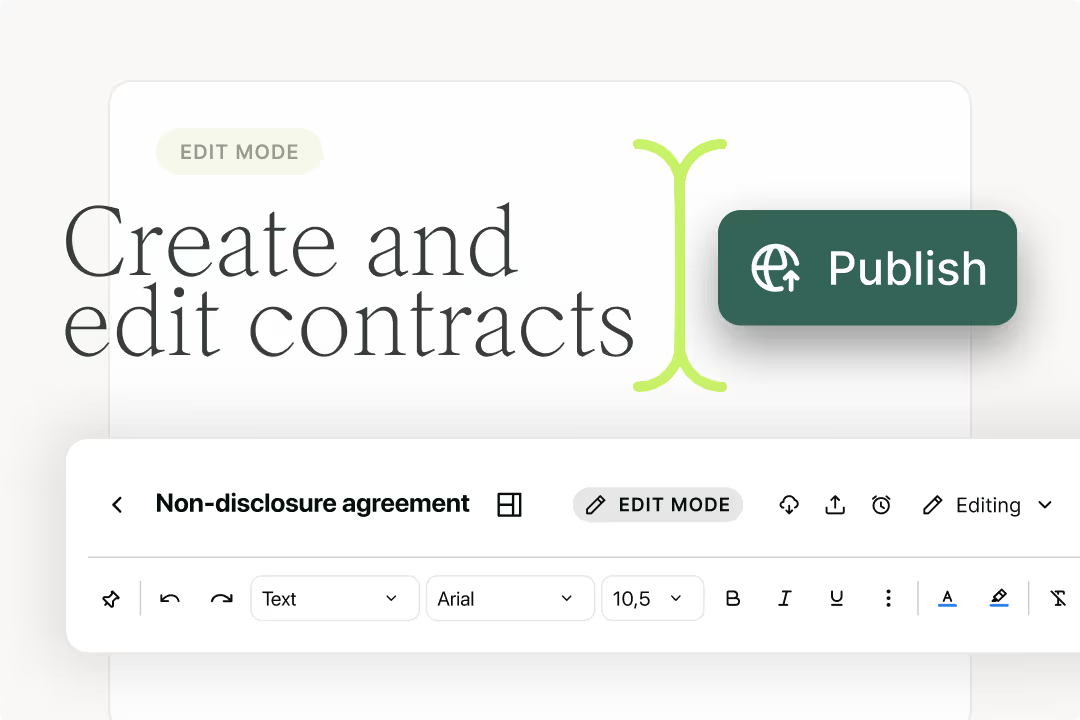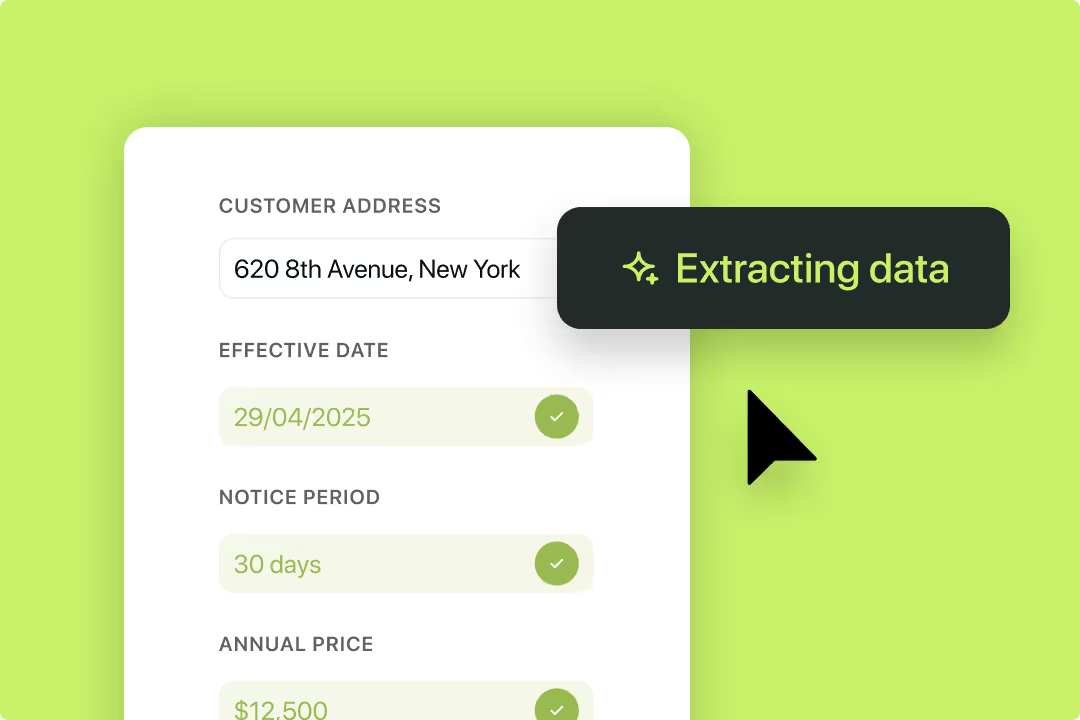Solutions
Customer Support
Resources
Construction contracts carry a lot of risk if they aren’t managed properly.
Fortunately, you can find out how to mitigate this risk and manage your construction contracts more effectively in this guide.
Construction contract management refers to the process used to create, negotiate, sign, store, and track the contracts used for construction projects.
These contracts can involve anything from the purchase of construction materials to service contracts ordering specific work to be completed. Most construction contracts cover both of these things though, with the contractor completing the work and sourcing the materials for the job.
When managed effectively, construction contracts provide structure, clarity, and certainty for parties. But when they’re not, construction contracts can result in costly disputes and risk.

Effective contract management practices are important for the construction industry because they provide clarity and protect the interests of parties if a project evolves over time.
For example, well-drafted, robust contracts can ensure that the parties are compensated or charged fairly if the scope of the project increases. This is important because it’s common for construction projects to change and develop as they progress, and contractors are often asked to add certain services or materials after the commencement date to accommodate this.
If construction contracts are managed and created poorly, parties can find themselves with responsibilities they didn’t expect to have, or costs they didn’t expect to pay. Effective contract management prevents this.
Construction projects also tend to have a long contract duration, meaning that the obligations within them need to be tracked and performed over a longer period of time.
This can be difficult for construction companies that manage lots of projects as they can easily lose sight of their responsibilities if they aren’t recorded and tracked properly.
However, effective contract monitoring and tracking can enable them to keep sight of their contractual obligations and continue executing contracts successfully for months, or even years to come. This is only possible when they have complete visibility into their contracts, though.
It’s common for construction projects to involve a lot of different stakeholders, and this can complicate collaborative processes like contract negotiations and approvals.
This is often the case for construction companies that rely on a fragmented, manual workflow for their negotiations. Communication between the parties can be painful and most revisions and suggestions aren’t captured properly, with different stakeholders often working on different versions of the contract.
Effective contract management processes help to eliminate this confusion and streamline contract collaboration, making it faster and easier to reach an agreement on a contract’s terms.

Construction contract management software helps organizations to create, negotiate, sign, store and track construction contracts quickly and securely.
This is achieved by streamlining and automating certain parts of the contract lifecycle and putting safeguards in place throughout.
Let’s run through how exactly construction contract management software can help companies like yours by looking at Juro’s features and workflows in particular.
Rather than drafting contracts from scratch, organizations that use Juro can create construction contracts in seconds using automated contract templates and workflows.
With Juro, users can create templates for different types of construction contracts, such as design-build, cost-plus, or fixed-price contracts. These can then be auto-populated through a simple Q&A workflow, or by pulling data from other business tools via an integration.
Juro users can even use conditional logic to automate which terms are hidden or added to a construction contract based on the values and information provided. This gives construction companies the flexibility they need to protect their interests while also minimizing risk by keeping contracts consistent.

Juro's collaborative contract platform enables stakeholders to review, negotiate and approve contracts in real-time, making it quicker and easier to push construction contracts forward.
With Juro, construction project stakeholders can work together on contracts in one workspace in real time. This is distinct from traditional workflows where stakeholders work on separate copies of a Word file and share their revisions back and forth via email.
Instead, Juro users can define the sequence that individuals review and approve contracts with customizable approval workflows. This can streamline the review and approval process by ensuring that contracts are sent to the right people at the right time.

Juro users can also invite counterparties to redline contracts and add their suggestions to construction contracts in real-time. This streamlines the contract collaboration process and brings discussions into one centralized workspace, reducing delays and getting contracts over the line faster as a result.
To find out more about Juro’s collaborative contract management platform and how it can enable the construction industry to agree contracts faster, hit the button below.

Juro’s data-rich contract repository gives construction companies instant visibility into contracts and their data. This makes it easier to track and manage contract obligations for long-term construction projects.
With Juro, individuals can create custom contract dashboards for their agreements, with all of the important contract metadata captured and displayed. This makes it quick and easy to review and share the important information in your contracts at scale.

Juro users can also set automated contract reminders for their construction contracts. This enables them to keep track of upcoming contract deadlines without having to manually record and revisit them all.
Instead, users will be notified about a deadline ahead of time, with no manual admin work required.
There are plenty of construction contract management systems on the market. However, Juro is the platform of choice for construction companies that want to agree contracts up to ten times faster and safely automate up to 75 per cent of their routine contract admin.
Juro’s collaborative, flexible and data-rich contract management platform enables teams to agree and manage construction contracts in one unified workspace, making it safe and easy for construction companies to create, negotiate, approve, sign, store and manage their contracts.
To find out more and join the 6000+ companies already using Juro to manage their contracts, fill in the form below.
Lorem ipsum dolor sit amet, consectetur adipiscing elit. Suspendisse varius enim in eros elementum tristique. Duis cursus, mi quis viverra ornare, eros dolor interdum nulla, ut commodo diam libero vitae erat. Aenean faucibus nibh et justo cursus id rutrum lorem imperdiet. Nunc ut sem vitae risus tristique posuere.

